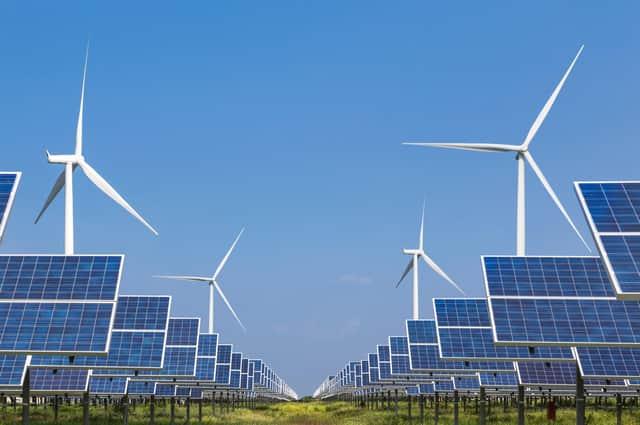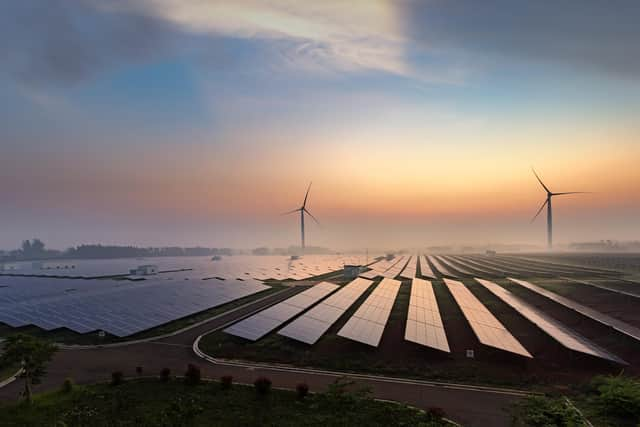Stop building solar farms on arable land – Yorkshire Post Letters


I DON’T always agree with the Environment Secretary George Eustice, but his speech to the Country Land and Business Association on climate change (The Yorkshire Post, December 3) hits the nail on the head as regards future world food requirements and Britain’s role in food production.
British farmers need to be encouraged and assisted where necessary to help in producing the food to enable Britain become self-sufficient in the future. We will not be able to rely on other countries supplying what we want and need, nor should we.
Advertisement
Hide AdAdvertisement
Hide AdWhy are we allowing good quality food-producing arable land to be used for solar panel farms?


It is argued by the companies involved that, if Britain is to phase out fossil fuels to produce electricity over the next 35 years, then solar panels can make a huge contribution to meeting the target. Agreed. But this should not be at the expense of food production. They are not making land anymore, it is a finite commodity and once lost cannot be got back.
Solar panels should only be sited on land unsuitable for food production and more investigation should also be made into the siting of the panels on the roofs of industrial/commercial buildings, and encouraging homeowners to use the roofs of dwelling houses.
Where agricultural land is being used for the solar panel farms, it is the norm for a 30 to 50-year term being agreed with the landowner for such use.
Advertisement
Hide AdAdvertisement
Hide AdThe landowner can argue that by granting the use of their agricultural land for solar panel use, they are contributing to helping the fight against climate change. But is this just a smokescreen?
Consider that if a landowner has his land let to a tenant farmer for food production, then he, the landowner, would be getting a return in rent of between £90 and £120 per acre per annum. But if the said same land was used for solar panels, then an income of up to £1,200 per acre per annum is possible, all things being equal as regards access to the National Grid.
Based on a block of land of 200 acres (the ideal size for a solar panel farm), this equates to an average £20,000 per year for agricultural food production and an average of £200,000 a year income to the landowner for the solar panels.
Given this, the Government should give serious consideration to legislation to prevent the loss of our food-producing land before it is too late.
Advertisement
Hide AdAdvertisement
Hide AdSupport The Yorkshire Post and become a subscriber today. Your subscription will help us to continue to bring quality news to the people of Yorkshire. In return, you’ll see fewer ads on site, get free access to our app, receive exclusive members-only offers and access to all premium content and columns. Click here to subscribe.
Comment Guidelines
National World encourages reader discussion on our stories. User feedback, insights and back-and-forth exchanges add a rich layer of context to reporting. Please review our Community Guidelines before commenting.